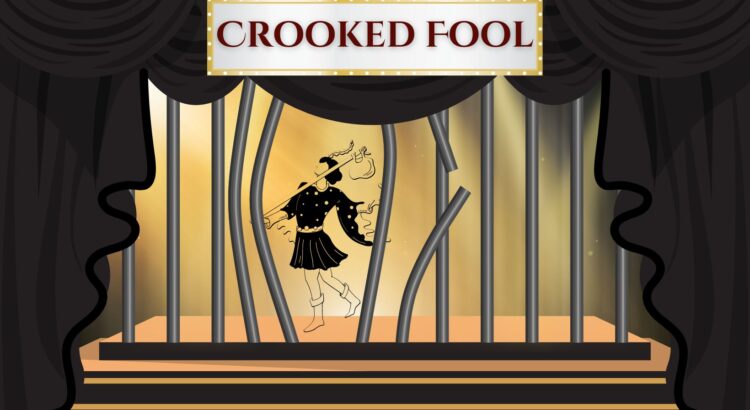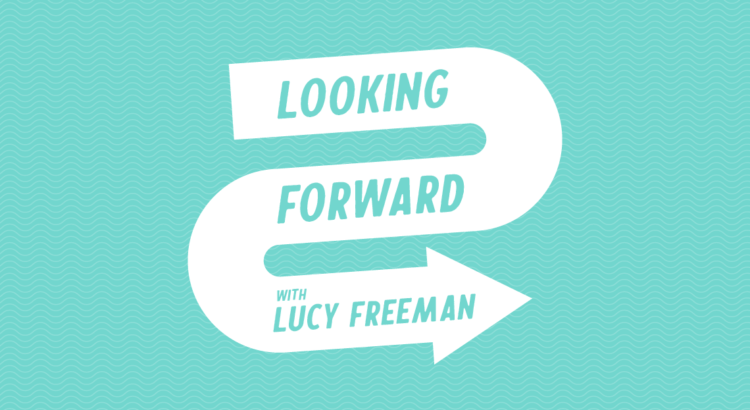I recently closed a professional, devised show in Detroit. For anyone who isn’t familiar with this type of theatre, it basically involves a group of performers building an original show from the ground up, often utilizing games and improvisation. When we were rehearsing one day, I started moving along with a poem being read by another performer.
And then the question came: are you a dancer?
And oof, that’s a tough one.
So first of all, because I am stubborn, yes. In small part due to a random smattering of dance classes, mostly in adulthood, and in much larger part due to some pretty extensive physical theatre training, I have a degree of body awareness and creativity, and I move to express beauty and tell stories. So yes, I dance.
But that’s not what I told them.
“It’s complicated.”
I’ve taken some dance classes. I’ve tried out a lot of styles. I’ve done some work developing stamina, flexibility, and somatic awareness. But, despite the way I think about my own identity as an artist, I’m also keenly aware that there are plenty of people – many of them dancers – who would not view that label as accurate.
As a child, my dance training was limited to a few classes at the Y. I did not spend years in ballet or modern technique classes learning the correct ways to position my feet or perfecting my placement. Instead, when the theatres all closed during the pandemic and I ended up with a bunch of free time on my hands, I started taking adult dance classes. It started with various hip hop styles, such as popping, locking, and breaking, then branched into the somewhat scarier and certainly more daring circus arts, like silks, pole dancing, and parkour, before coming back down to Earth with styles like modern and contemporary. Even now, if somebody tried to verbalize some kind of choreography to me, it’s still a crapshoot whether I’ll have any idea what they’re talking about. Though it’s worth noting that I can do quite a lot if somebody explains movements in terms of body mechanics instead of dance vocabulary.
So, this time, I’ll pose the question to you: am I a dancer? Can I call myself a dancer if I didn’t spend my entire childhood learning technique and then ideally perfecting it in college? If my aesthetic is less “point your toes” and more “let’s try this weird thing and see if it looks cool?”
There’s a lot at stake in this question. How should I think of myself artistically? What are the “right” labels?
But most importantly: who gets to call themselves an artist?
Because if the only people who get to be artists are those who can afford thousands of hours of classes and do things the “right” way according to the standards of the dominant culture, that’s a really big problem.
First: how many hours of dance classes does it take to perfect the minutiae of technique? And more importantly, how many people can afford that many dance classes? As a kid, I sure couldn’t. I don’t necessarily think that there’s anything wrong with learning technique in dance or any art form. There’s definitely some benefit to have more tools to pull from when creating. But I do think there’s something inherently elitist and exclusionary in saying that there’s only one right way to create, and that only those with enough money and resources are allowed access.
The some obvious unfairness to telling people that if they can’t afford “real” training, they can’t be artists. But there’s an even bigger problem: by telling people that only those who can afford extensive training get to be “real” artists, we’re ensuring that art remains a domain only for the wealthy and powerful.
Narratives govern our lives. Tsubasa Yamaguchi famously said, “Art is a language without words,” and I’m inclined to agree. Because we can say more through the arts than we might be able to with words alone, making and sharing art in its various forms allows us the chance to challenge dominant narratives. If we tell ourselves the story that everything’s fine, nothing will change. But if we can alter the story we tell ourselves to say that change needs to happen, there’s some chance that it actually will. People will only try to change things if they believe something is wrong. Change the story, change reality.
So here’s the thing: if only the privileged make art, privileged narratives are perpetuated.
Part of moving towards a more just world is being open to expanding our ideas of what counts as normative, good, and beautiful. And in all of these cases, but particularly in regard to beauty, the arts have a unique ability to challenge entrenched ways of thinking and help us to see beauty in new places. By taking away the gatekeeping around what counts as a “real” artist, we allow more people the chance to challenge narratives that fail to acknowledge the beauty and goodness in those who don’t fit our reductionistic, colonized ideas of who “deserves” or has “earned” these labels, based either on having inherent traits that are favored, or by developing normative traits through conformity and compliance.
So what does it mean to tell me that I’m not a dancer? To say that because I move differently than I might if I had trained in more conventional ways from childhood, my body can never fit within the imposed parameters? What does it mean that my body, ever crooked due to scoliosis and sometimes uncooperative due to chronic illness, will never hold itself the exactly the way a dancer body “should?” If I can’t dance right, should I never dance at all?
Movement has been my primary means of managing chronic pain for years, and for this reason among many others, I refuse to believe that my identity as a creative mover, a researcher of my own body, as a DANCER should be locked up in an ivory tower that I can only access if I force my non-normative body to behave itself and cough up money and resources that I don’t have. Because then my body would just be another “weird,” “ugly” body that would never get to move at all. Movement should not be a privilege reserved for the white, cis, straight, or able-bodied.
George Washington Carver said, “Education is the key to unlock a golden door of freedom.” And I don’t necessarily disagree. I can still see the value in working with great teachers, getting feedback, introducing yourself to new ideas and aesthetics, and pushing yourself as an artist. But given the power dynamics and barriers still inherent in education and training, I don’t think it’s fair to lock people out and tell them their creativity and perspectives aren’t legitimate if they can’t access these things.
So yes – because I have put in the work to study my own body and explore various styles of dance, and because I am challenging notions of what physical beauty and expressive movement can be – I am a dancer.



 This week I had the opportunity to chat with Akshay Chacko, Co-President of Michigan Electronic Music Collective (MEMCO). He gave me some insight into what MEMCO does on campus, how they’ve adjusted to COVID, and how students can get involved with the organization. Let’s dive right in!
This week I had the opportunity to chat with Akshay Chacko, Co-President of Michigan Electronic Music Collective (MEMCO). He gave me some insight into what MEMCO does on campus, how they’ve adjusted to COVID, and how students can get involved with the organization. Let’s dive right in! addresses these areas by providing equipment for their members to learn and practice on – from their full-scale, state-of-the-art setup to more portable DJ controllers that are able to be individually borrowed during COVID (and which they were able to get thanks to an Arts at Michigan grant!). They also host a series of speaker panels and educational events which cover topics like the history of electronic music, insights from talent bookers or graphic designers, and understanding the intersectionality that techno music was built upon – including its connections to Detroit. Many of their educational programs have been able to be moved online fairly seamlessly, allowing their members to grow their passion and knowledge of music even in quarantine.
addresses these areas by providing equipment for their members to learn and practice on – from their full-scale, state-of-the-art setup to more portable DJ controllers that are able to be individually borrowed during COVID (and which they were able to get thanks to an Arts at Michigan grant!). They also host a series of speaker panels and educational events which cover topics like the history of electronic music, insights from talent bookers or graphic designers, and understanding the intersectionality that techno music was built upon – including its connections to Detroit. Many of their educational programs have been able to be moved online fairly seamlessly, allowing their members to grow their passion and knowledge of music even in quarantine. which it’s usually just members of our club but sometimes we would book, like, bigger artists from Detroit and stuff. We handle the booking, we handle, like, the graphic design, the promotion, and we meet up and then go, you know, poster around campus and downtown and stuff, and then we handle the production of this event from start to finish.”
which it’s usually just members of our club but sometimes we would book, like, bigger artists from Detroit and stuff. We handle the booking, we handle, like, the graphic design, the promotion, and we meet up and then go, you know, poster around campus and downtown and stuff, and then we handle the production of this event from start to finish.” dle booking and all these things and, like, for an upcoming event we have booked some DJ and stuff… I’d say we have a professional setup that is, like, up to par with, you know, any big DJ and what they’re doing, so it’s as good as we could be. I’m honestly, like, really proud of the setup that we have to do our live streaming.”
dle booking and all these things and, like, for an upcoming event we have booked some DJ and stuff… I’d say we have a professional setup that is, like, up to par with, you know, any big DJ and what they’re doing, so it’s as good as we could be. I’m honestly, like, really proud of the setup that we have to do our live streaming.”

